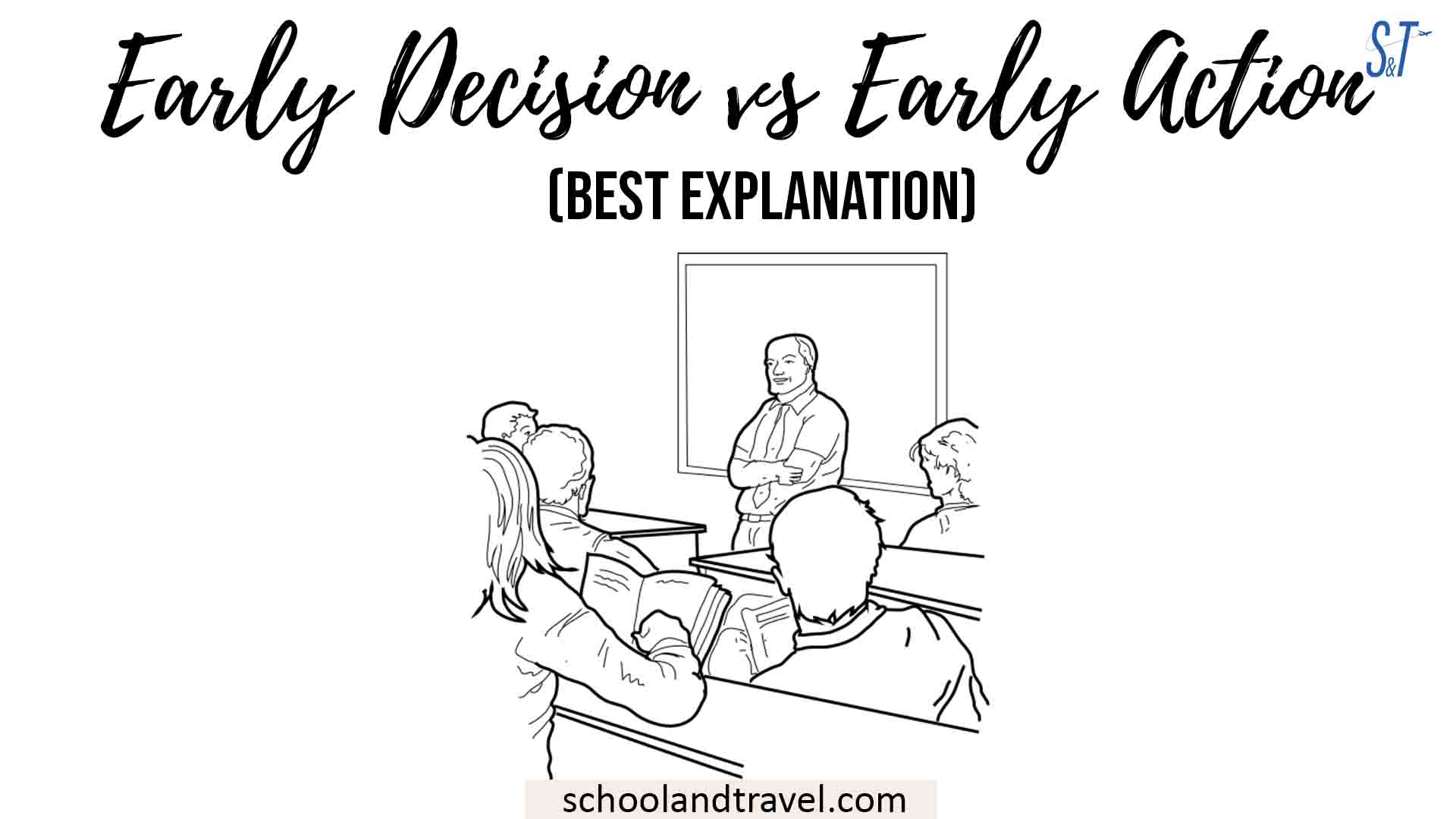Best Colleges For Early Childhood Education In New England: This is an excellent time to enter the field of early childhood education, and you can find the best school here to pursue your academic dream.
On our list of the best colleges for early childhood education in New England, you can find the best school to earn your undergraduate degree in early childhood education.
We have compiled a ranking guaranteed to assist you in choosing the most suitable for you.
This ranking is a list of the top colleges in New England that offer early childhood education programs.
Best Colleges For Early Childhood Education In New England
1. Yale University
If you choose to study at Yale University, you will be among some of the most intelligent people in the world.
The school is placed second among the institutions in the New England area that offers child development education with the highest number of students enrolled.
The relatively big Yale University, which may be found in New Haven, Connecticut, is responsible for awarding 103 bachelor’s degrees in child development education for the academic year 2020–21.
The undergraduate student-to-faculty ratio of four students for every faculty member indicates that students will have a greater opportunity to interact one-on-one with their instructors.
At a rate of 0.7%, the low default rate on undergraduate student loans is a positive sign that students have an easier time paying down their debts than they may at other schools.
As a point of reference, the default rate across the nation is 10.1%.
2. Merrimack College
If you choose to study education at Merrimack College and focus on early childhood education (PreK–2), you will acquire the knowledge, skills, and self-assurance necessary to instruct younger students.
The school is designed to give you the education and experience you need to get certified to teach early childhood education in Massachusetts.
You will establish your educational philosophy, compile a portfolio of your work, and improve your abilities to lead a classroom through participation in experiential learning activities.
By participating in the program for early childhood education, you will:
- Develop a deeper comprehension of how young children grow and acquire knowledge.
- Get some hands-on experience teaching the foundational subjects of reading, arithmetic, and science, which are all extremely important.
- You can expand your knowledge by taking one or more available electives, including classes on cultural diversity in schools, children’s literature, and comparative politics.
Every student who majors in education must complete at least one practicum.
During both the pre-practicum and the practicum phases of your student teaching, you will obtain invaluable classroom experience.
You now have the opportunity to put everything you’ve learned at Merrimack to use at one of the many other colleges in the surrounding area.
You will be well-prepared to pursue a profession in education after successfully completing the program you are enrolled in. Positions could include things like:
- Educator of children in preschool, kindergarten, or primary school.
- Guidance counselor.
- Administrator of the school.
3. Wheaton College
More than one hundred different majors and minors in the liberal arts and sciences, including the early childhood education program, are available to students at Wheaton College, which is a well-regarded undergraduate university.
The strong academics of the college are combined with hands-on learning opportunities such as internships, research, campus jobs, student leadership, and entrepreneurial endeavors as part of the college’s integrated educational program.
Wheaton University commits more than $1.2 million per year toward these initiatives, ensuring that money is available for every student.
4. Emerson College
Emerson College is the only college in the United States with four years of education devoted to studying communication and the arts.
The college can be found in the middle of downtown Boston, Massachusetts.
Over the course of more than 130 years, Emerson College has provided education to some of the most incredible and imaginative minds in our respective fields of study.
You’ll be able to hone your craft and find success in fields and industries that have a significant impact on our society, culture, and future by taking part in our hands-on, immersive programs, which give you the real-world experience, professional-grade facilities, and foundational knowledge you need to succeed.
In addition, Emerson College has an excellent early childhood education program in that you can earn a degree.
The early childhood education program at Emerson College is one of the college’s most renowned programs, which draws lots of prospective students to make Emerson College their first choice of college.
5. Brandeis University
Brandeis University earned its spot on the list of institutions that offer an early childhood education program in the New England region.
The town of Waltham, Massachusetts, is home to Brandeis University.
This institution conferred 91 bachelor’s degrees in the early childhood education program upon deserving students for 2020-2021.
Students who begin their education at the institution are more likely to complete it there. The retention rate for first-year students is 90%.
Compared to the national default rate of 10.1%, the school’s undergraduate student loan default rate of 1.2% is slightly lower than the national default rate.
Because the student-to-faculty ratio for undergraduates is an amazing 10 to 1, students may have more opportunities to work more closely with their professors than in other schools due to the smaller class sizes.
6. The University of Maine
The early childhood education program at the University of Maine at Farmington is highly regarded in part because students in the program are required to complete practicum hours in early childhood settings.
These hours allow students to put classroom theory into observable, hands-on practice.
In addition to being CAEP-accredited, our program is based on the standards for teacher preparation established by the National Association for the Education of Young Children.
You have the option of selecting from the following three courses for early childhood education:
- Option for early education and care (which does not lead to certification): This course will prepare you to work with children from birth to age 5. You get to decide what area of expertise you want to pursue.
- Option for birth to five years of education certification: This program will prepare you to sit for the Maine Teacher Certification Exam, enabling you to instruct in various early childhood settings, including pre-K classes in public schools.
- Education option (Certification) for Grades K–3: This program will prepare you to sit for the Maine Teacher Certification exam, which will enable you to teach in early childhood settings in Maine, including classrooms for kindergarten through third grade in public schools.
Our Early Childhood Education program graduates are qualified to apply for jobs in various settings, including childcare, head start, prekindergarten, community and recreational programs, and grades K–3 in both public and private schools.
They also have the opportunity to teach in these settings if they choose to do so.
7. Urban College of Boston
The Urban College of Boston is an institution that every student interested in early childhood education should consider.
The Urban College of Boston is a small, private college that is not affiliated with any profit-making organizations and does not have many students enrolled.
What Career Paths Are Open To Me If I Earn A Bachelor’s Degree In Early Childhood Education?
Early childhood education graduates have access to a wide variety of employment opportunities as a direct result of the widespread prevalence of jobs requiring this level of education.
Early childhood occupations include childcare worker, preschool teacher, teacher assistant, and special education teacher assistant positions.
The degree opens the door to various options for promotion within the childcare sector of the workforce.
For example, graduates will satisfy the educational qualifications necessary to be considered for early childhood director employment.
Directors of daycare centers are responsible for various administrative tasks, including hiring and firing all staff members, scheduling, enforcing policies, and budgeting.
Directors can operate their autonomous childcare facilities or find work in franchised childcare establishments.
The Bureau of Labor Statistics (BLS) reports that directors of preschools and childcare centers earn a yearly median income of $46,890.
Tutors and nannies will also look for work in early childhood education to increase their marketability to potential employers.
Frequently Asked Questions (FAQs) on Best Colleges For Early Childhood Education In New England
Early childhood education focuses on the critical developmental milestones, skills, and concepts children attain during this period, ranging from social-emotional skills to the beginnings of numeracy, literacy, and critical thinking. This period of a child’s life is considered the “primary years” of their lives.
The goal of ECE is to offer children tools that help them develop the emotional, social, and cognitive abilities needed to become lifelong learners.
Early childhood educators are responsible for ensuring that children’s health and safety and their educational and developmental growth are prioritized at all times. Educators can operate independently within a team or under direct supervision, depending on the environment in which they are employed.
Education is something no one can ever take away from you, and it is the foundation upon which a stable life can be built. You improve your odds of having better career opportunities and open new doors for yourself if you have a good education and hold a degree from an accredited college or university.
Conclusion
Students who complete the requirements for a bachelor of arts in early childhood education become equipped with the skills necessary to become critical thinkers regarding children’s intellectual, social, and physical development.
The most important thing early childhood educators learn is working effectively with children and their families inside and outside daycare facilities.
Awesome one; I hope this article answers your question.
Editor’s Recommendations:
- 10 Best Jobs For College Drop Outs (FAQs)
- How Students Can Get Essay Writing Help
- 7 Top Guides to Writing the Perfect Essay in College
- 13 Best Jobs for Recent College Grads (FAQs)
- 7+ Easiest Business Schools to Get Into (FAQs)
- 15 Questions To Ask Potential College Roommates (FAQs)
If you find this article good, please share it with a friend.




